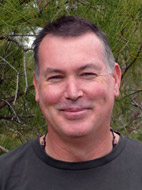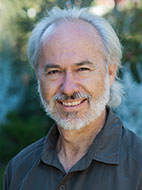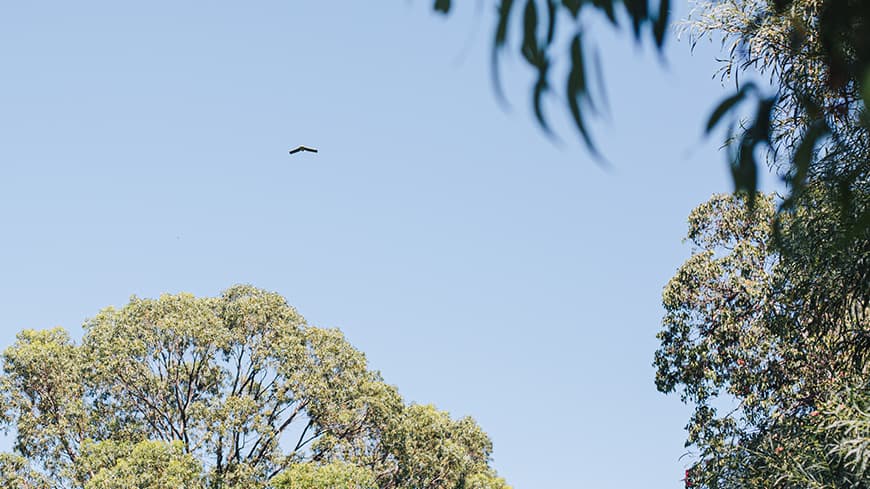 Undoing the damage done to native trees is where ECU’s aerial surveillance comes in.
Undoing the damage done to native trees is where ECU’s aerial surveillance comes in.
It was a decade ago when scientists first discovered native trees at Kings Park, some more than 100 years old, were starting to discolour and lose leaves.
In 2020 the Director of Environment and Infrastructure called in Edith Cowan University (ECU) geospatial scientists to assist in monitoring vegetation for further signs of decline with the construction of a bridge from Perth Children’s Hospital into Kings Park.
"To monitor the declining health of the trees we developed a research project built around unmanned aerial vehicle (UAV) or drone surveillance," ECU’s Dr Dave Blake said.
"At the time they were concerned that construction activities would impact the native trees in the area which are of high conservation value."
After years of intensive research, ECU scientists have discovered iron-rich bore water, which had been treated with additives in the 1990's, was the primary cause of the decline in tree health.
Undoing the damage done to native trees is where ECU’s aerial surveillance is crucial.
"We collect RGB, multispectral and thermal data using drones 4-6 times a year, and this allows us to estimate vegetation health at very high spatial scales, for example at the tree canopy scale or leaf clusters and evaluate whether tree health is declining within the context of seasonal variation," Dr Blake explained.
"The work we are doing means the authorities can implement strategies to prevent further decline in the future."
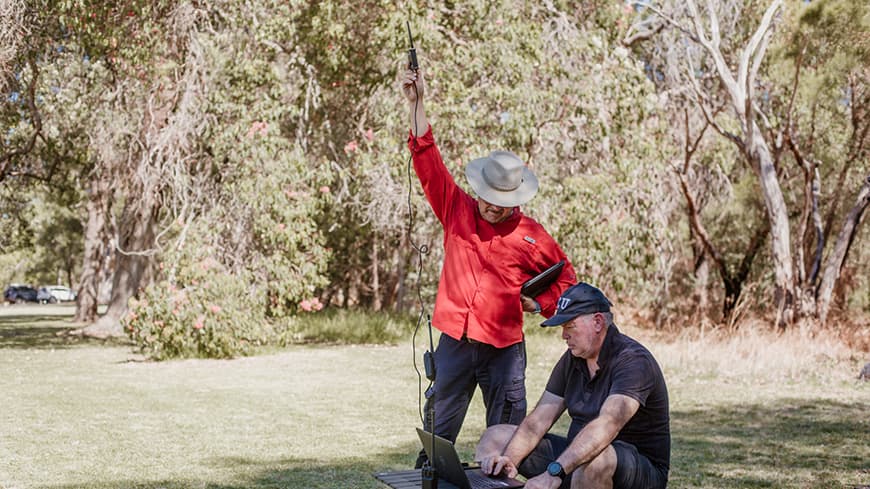 The UAV technology allows ECU scientists to survey the entire park in a few hours.
The UAV technology allows ECU scientists to survey the entire park in a few hours.
Preserving native trees – canopy renewal
The current project is investigating vegetation health in response to changes in the irrigation strategy used in Kings Park.
An Industry Engagement PhD has also been established between ECU and Kings Park Science to evaluate the use of UAV technology, such as drones, to monitor vegetation health in an urban conservation estate.
"The challenge is, how do we monitor vegetation health across the whole of the park that allows us to detect vegetation decline in a timely manner," Dr Blake said.
"It’s impossible to monitor all the trees across the park using traditional monitoring methods, using UAV technology allows us to survey the whole park in a few hours."
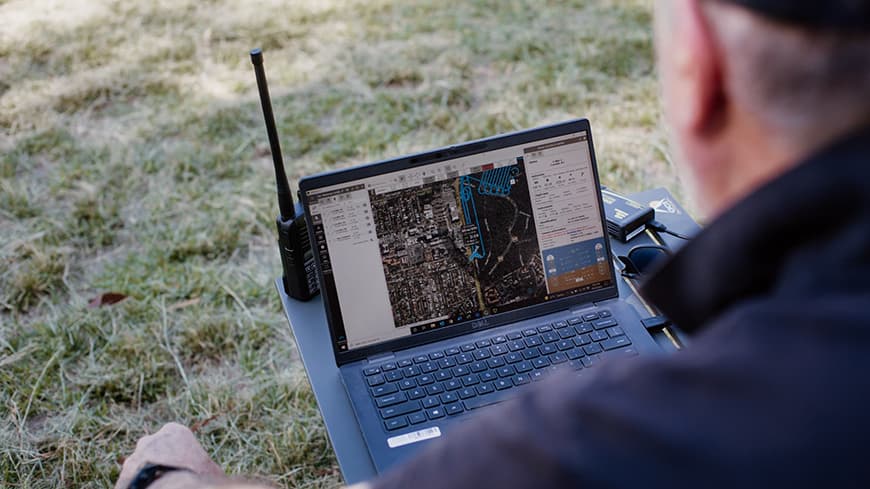 The team collect data using drones 4-6 times a year at Kings Park.
The team collect data using drones 4-6 times a year at Kings Park.
It's anticipated the aerial surveillance, if successful, could be used for native vegetation preservation across Australia, and even overseas.
"We use a combination of wavelengths such as visible, infra-red and thermal energy to estimate tree health and we compare the health of monitoring trees and control trees," Dr Blake said.
"Use of UAV in an urban environment is complex and a lot of planning is required to comply with CASA regulations, but we believe it could be utilised far beyond Kings Park for future forest revegetation."
Edith Cowan University geospatial scientists involved in the Kings Park project are Dr Dave Blake and Associate Professor Eddie van Etten. Both are members of ECU’s Conservation and Biodiversity Research Centre.

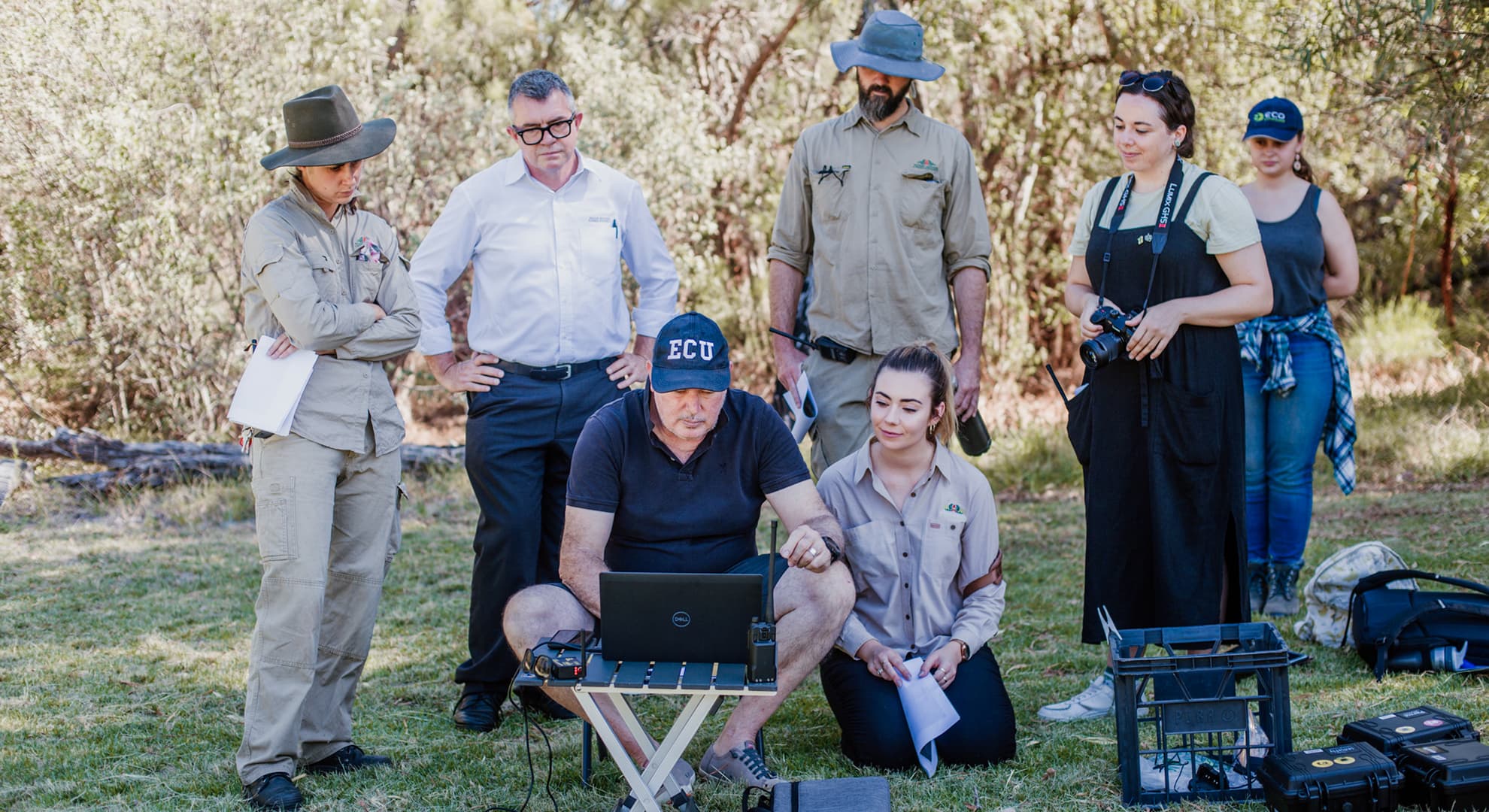 Undoing the damage done to native trees is where ECU’s aerial surveillance comes in.
Undoing the damage done to native trees is where ECU’s aerial surveillance comes in.
